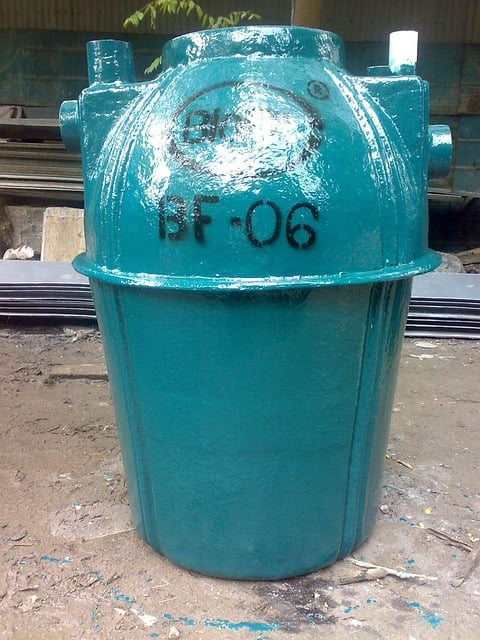Regular septic system maintenance, including tank pumping every 3-5 years, leak checks, and performance monitoring, is crucial for efficient water management and preventing costly repairs or failures. DIY tasks like inspections and basic cleaning promote sustainability, but complex issues like clogs, odors, or drainage problems require professional intervention using specialized equipment for optimal, hygienic system operation.
“Unsure whether to tackle your septic system maintenance head-on or leave it to the professionals? This guide cuts through the clutter. We explore the ins and outs of DIY septic care, empowering you to make informed decisions.
From understanding the basics and key components of your septic system to a practical DIY routine, we’ve got you covered for routine tasks. But know your limits – we’ll help you recognize when it’s time to call in the experts.
Get ready to maintain your septic system like a pro!”
- Understanding Septic System Maintenance: Basics and Components
- What You Can Do Yourself: A DIY Guide to Routine Care
- When to Call the Pros: Recognizing Signs and Services Offered
Understanding Septic System Maintenance: Basics and Components

Understanding Septic System Maintenance is key to ensuring your property’s water management system operates efficiently and effectively. A typical septic system includes several components: a septic tank, drain field, and pipes connecting them. Wastewater enters the tank where it’s treated through natural processes involving bacteria. Solid materials settle at the bottom while fluids move into the drain field for further treatment and absorption into the soil. Regular maintenance involves pumping out the tank to remove these settled solids, typically every 3-5 years, depending on usage. Checking for leaks in pipes and monitoring the system’s overall performance are also crucial. Knowing when to call a professional is essential, as they possess the tools and expertise to handle more complex issues like system repairs or replacements.
What You Can Do Yourself: A DIY Guide to Routine Care

Maintaining a septic system is an essential aspect of home ownership, and while it might seem daunting, there are several tasks you can tackle yourself as part of routine care. For many everyday chores, doing it yourself (DIY) can be cost-effective, satisfying, and even environmentally friendly.
When it comes to DIY septic system maintenance, start with regular inspections and basic cleaning. This includes checking for any visible signs of damage or leaks around the tank and pipes. You can also learn to identify and address clogs in drains and sinks by using natural remedies like baking soda and vinegar. Additionally, scheduling periodic pumping of your tank is crucial; this process removes solid waste buildup, ensuring optimal performance. Remember, always refer to your system’s user manual for specific guidelines and consult professionals if you encounter complex issues or uncertainty.
When to Call the Pros: Recognizing Signs and Services Offered

Many homeowners attempt DIY septic system maintenance, but there are clear signs indicating it’s time to call in the professionals. Regular maintenance is crucial for preventing costly repairs or complete system failures. If you notice any of the following issues, it’s best to leave the work to experts who specialize in septic systems: clogs, persistent bad odors, water backing up into drains, or slow-moving drains.
When you opt for professional services, you gain access to a range of comprehensive solutions tailored to your specific needs. These experts offer inspections, cleaning, repairs, and even system upgrades. They utilize specialized equipment and products designed for optimal septic tank functionality, ensuring your system operates efficiently and hygienically.
When it comes to maintaining your septic system, understanding the do’s and don’ts is key. While some tasks can be tackled by homeowners as part of routine care, such as regular inspection and pumping, there are signs and issues that require professional attention. By recognizing when to call the experts, you’ll ensure your septic system operates efficiently and prevents costly repairs. Remember, proper septic system maintenance is essential for both environmental health and the longevity of your on-site treatment facility.
